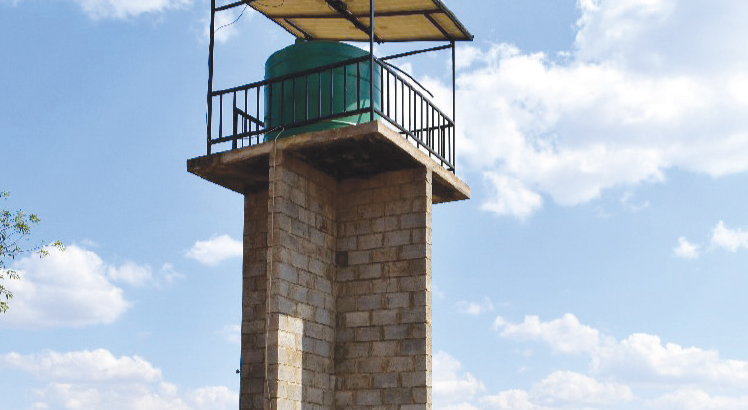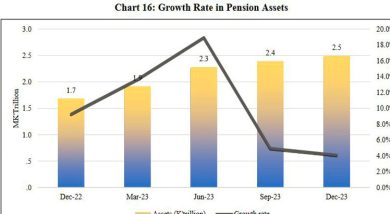Improving lives of rural communities with clean water
It is 6am and raining heavily at Chisomphayani Village in Traditional Authority (T/A) Mduwa in Mchinji District.
As a mother, Nelia Dulani is faced with multiple dilemmas. First, she is supposed to take her sick child to the hospital. Second, she has to walk four kilometres to and from a nearby borehole to fetch clean water for her family. And third she is supposed to join her husband in the garden.
She says she visits the hospital now and again with members of her family to get treatment for waterborne diseases, particularly diarrhoea.
“We are always sick and spend much of the time going to the hospital because of the water that we use. We get it from unsafe sources where livestock such as pigs also drink from,” she says.
Almost all challenges, including poor access to potable water, poor sanitation and poor hygiene affect women and children. Children and women like Dulani shoulder the burden of poor access to clean water as they often walk long distances to access the commodity or use water from unsafe sources.

According to Unicef Malawi, although 67 percent of Malawi’s households have access to drinking water, distribution among districts and between urban and rural areas is uneven.
The findings reveal that improved drinking water sources are more common in urban areas at 87 percent compared to 63 percent in rural areas. In rural areas, 37 percent of households spend 30 minutes or more to fetch drinking water in comparison to 13 percent in urban areas.
On sanitation and hygiene, Unicef notes that poor sanitation and hygiene are major contributors to the burden of disease and child survival, costing Malawi $57 million each year, or 1.1 per cent of growth domestic product.
Although significant progress has been made to eradicate open defaecation, which six percent of the population still practice, only 26 percent have access to basic sanitation services.
Evidence shows that improving access to water significantly increases the time women spend raising children and doing other household work, thereby increasing their productivity and improving child well-being.
It is against this background that New Apostolic Relief Organisation with support from Nak-Karitativ from Germany implememnted a Water, Sanitation and Hygiene (Wash) project in T/A Mduwa in Mchinji.
Among others, the project has installed two solar-powered water pumping systems that supply piped water to eight points.
New Apostolic Relief Organisation country programmes coordinator Anthony Ngwira says the project is a gift to people of Mchinji, particularly T/A Mduwa.
“We have implemented this project to the tune of K140 million with support from the Nak-Karitativ, a German non-governmental organisation and it is a gift to the Mduwa communities. This water and sanitation project was launched in 2019 with the aim of contributing to increased access to safe water and sanitation coverage through basic sanitation infrastructure and hygiene promotion,” he says.
According to Ngwira, the installed 13 water points are benefiting over 669 households with a population of 4 356, including 911 primary school learners while the 14 improved latrines are benefiting at least 3 986 learners (2 085 girls and 1 901 boys), 1 000 traders and 250 mothers at the under-five clinic.
He says the project has also facilitated the formation of 18 village savings and loan (VSL) groups for 13 water points, popularly known as banki pampopi or banki pamjigo.
“The idea is to improve the economic status of the community, especially women. A good percentage of their earnings through small-scale household businesses will be used to contribute to the community development fund which is aimed at sustaining the project through maintenance of Wash facilities,” says Ngwira.
Dulani says she can now afford a smile because her family is no longer suffering from waterborne diseases because they are accessing clean piped water.
“We now have piped water in our village and my family members are always healthy because we use clean water. We thank the project for bringing piped water to our village,” she says.
T/A Mduwa says the coming of the Wash project to his area signifies the dawn of a new era as far as access to potable water and hygiene facilities is concerned.
Says the chief: “We are happy now that we have access to clean piped water and modern sanitation facilities which are contributing to people’s well-being, including reducing cases of waterborne diseases.”
Mchinji District Council chairperson White Musha describes the project as a huge contribution to government and people of Mduwa.





